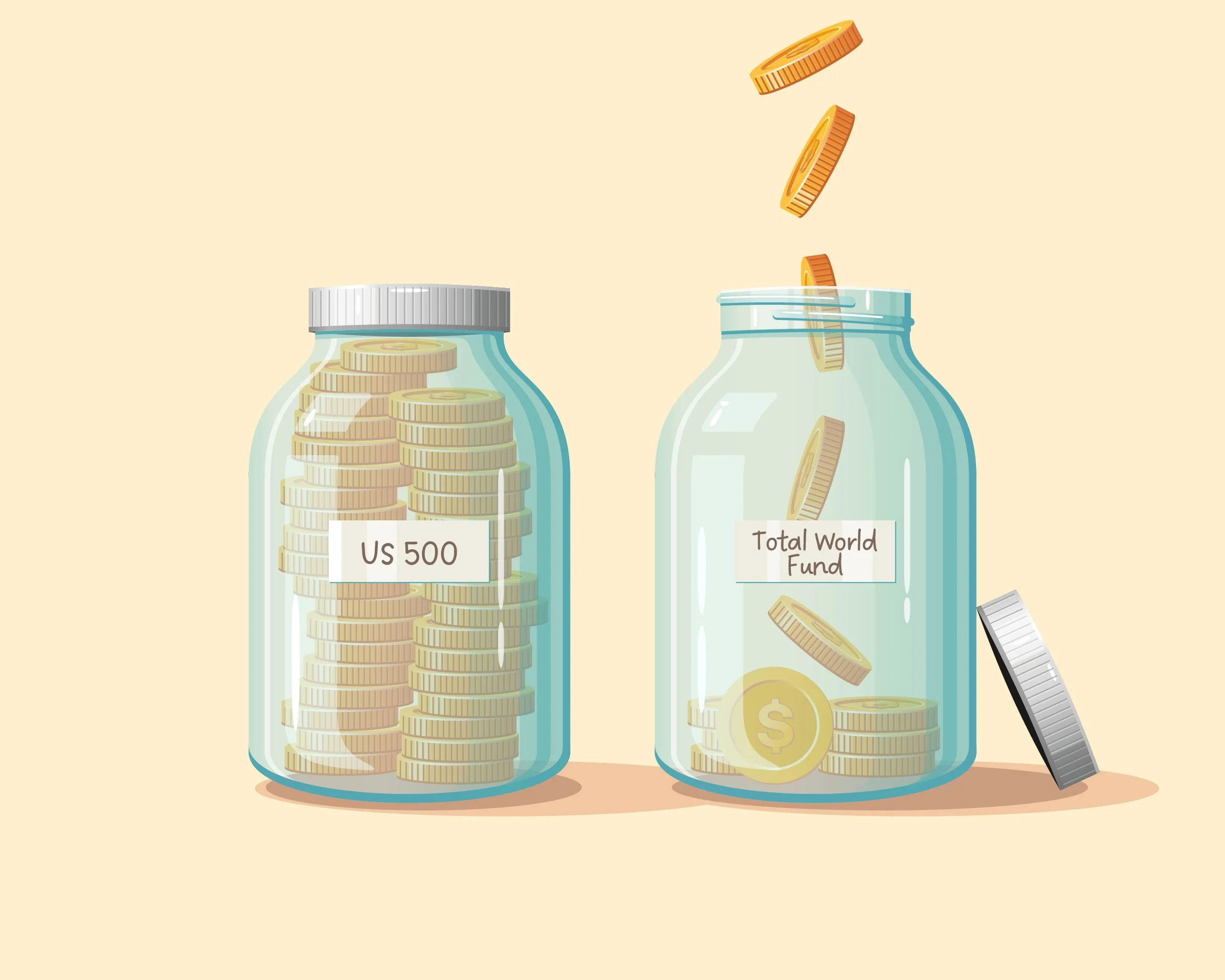Wednesday marked the beginning of a new month. The first day of any new month is the day that, from a personal finance perspective, energises me the most because it is when I update our net worth and get a snapshot in time of how Jonny and I are financially progressing. Are we growing more prosperous or poorer? When I’m asked for a sound bite one-liner/single comment about ‘taking control of your money’, encouraging others to track their net worth is my go-to reply. Without a doubt, it is the most effective tool for understanding whether you are going backwards or forwards financially. It only takes a couple of minutes each month, but hands down, it's the most simplistic yet effective way of showing us how far we have come and where we might be headed. Additionally, since I’m relatively open about our finances, I thought you might be interested in seeing our progress over the last month.
All in ETFs
Life Update: Cost of Living
Is life really more expensive for my whānau of three at the moment? I honestly wasn’t 100% sure. So, I decided to find out - in detail. Why? Economically speaking, it feels incredibly gloomy at the moment. It would be easy to fall into that mindset, which, as an optimist, I am loath to do. So, the best option is to find some facts. Managing personal finances is a delicate art of pulling various income and spending levers, and I wondered if all that I’m doing is working. To calculate what our life currently costs, I pulled up two full years of spending and earning data and compared them; the results were interesting.
How ETFs Are Taxed in NZ
Let’s talk about how Exchange Traded Funds (ETFs) are taxed in New Zealand. Exciting stuff. Creating this blog post gave my brain quite the workout, I can assure you! I’ve written specifically about tax a few times over the years, but rules change, companies come and go, and the tax questions keep arriving in my inbox. This post was inspired by Susan, who asked about overseas ETFs, the FIF rules, and even whether you pay tax if your investment makes a loss. Tax is complicated, which is why I keep my investing simple. I want you to read what I’ve written and then research, discover and learn for yourself. If you keep your investing simple, you should not need an accountant or tax professional. When the topic of taxes comes up, I’ve often noticed that people can get themselves quite worked up. But for me, someone who has invested for many years, paying tax on investments has always been relatively straightforward.
Applying The Barefoot Investor in NZ - 2025 UPDATE
The content I’ve created on applying The Barefoot Investor book to New Zealand remains some of the most regularly viewed on The Happy Saver, with collectively close to 100,000 views. I continue to gift his book to others because I believe it’s a perfect guide to getting on top of your finances. If you were to combine his book with Rebel Finance School’s free online course, you could pretty much call yourself “financially literate.” Since The Barefoot Investor remains so popular, it's time for me to update the March 2020 blog post I wrote, so that all those people reading the book for the first time, as well as those following along with The Barefoot Investor principles, have a reliable New Zealand resource to turn to.
What 220 Kiwi Net Worth Millionaires Told Us
Reaching a net worth of $1,000,000 is no small feat, it takes time, discipline, and a whole lot of intentional decision-making. I’ve been lucky enough to hear from over 220 Kiwis who’ve done just that, and they generously shared how they got there by filling out my Net Worth Millionaire Questionnaire. In this blog post, I used AI to analyse all of the responses, giving me a summary and highlighting the repeated themes across all submissions for each questionnaire question. The result? A fascinating look at how everyday New Zealanders are quietly building wealth. The beauty of becoming a millionaire is that, as you will see, there are many paths that lead to it. So, pick your own path, and enjoy the journey. Whether you’re just getting started or already on your way, I reckon you’ll find a few golden nuggets in what they had to say.
KiwiSaver’s Government Contribution is Being Cut – Here’s What I’m Doing About It
Every June, I check in with our KiwiSaver accounts to make sure we’re on track to receive the annual government contribution. If you put in at least $1,042 by the 30th of June 2025, the government will deposit $521 into your KiwiSaver account; a welcome little bonus for those of us thinking ahead to retirement. But from 1 July 2025, that bonus will be cut in half, dropping to just $260 a year. With the government’s contribution shrinking, yet again, it’s time for me to rethink my strategy. In my recent fortnightly email, I mentioned that I was considering ceasing payments into my KiwiSaver. My friend Wayne questioned that move, so I wanted to explain a bit more about what I’m planning on doing with my KiwiSaver, and what Jonny and I are planning as a couple, especially given we will be retiring in our fifties.
Mortgage or Investing? Why Not Both?
Andrea asked me this question, “Mortgage vs investments... One or the other, or both?” With two young kids, a $240,000 mortgage, and an eye on the share market, she’s wondering if delaying investing to get rid of the mortgage is the best move, or if she’s missing out on valuable time in the market. As our KiwiSaver balances grow as a nation, plus people become aware of share market investing as a successful way to make money outside of housing, more people question whether putting additional payments towards their mortgage is the ‘right’ thing to do. Would they become wealthier if they reduced their mortgage payments and invested that money instead? The fear of missing out is real.
I have stopped buying the US 500. Well, sort of.
Managing our money is never ‘done’. I am constantly tweaking and adjusting. Whether for the little things like an increase in our weekly rates bill, or preparing for a bigger expense. Our income and costs are constantly in flux, and we need to keep monitoring and evolving with those changes. The time has come to tweak our investments. Which is why, once I was up and running with our new KiwiSaver provider, I turned my attention to our US 500 ETF and began researching whether we should also slightly adjust our direction with this investment.
Everything Broke at Once - Why We’re Financially Hunkering Down
There’s been a bit of drama this month—our household needs to reduce its spending. We’ve got a few things going on, and I think we’d be foolish not to mind our dollars right now. As of April 2025, with storm clouds brewing, we’re financially hunkering down. Before you start to think that The Happy Saver has gone into a tailspin because the share market is particularly volatile at the moment, well, that’s not our problem at all. We haven’t reduced the amount we invest each month. While the cost of everything else is rising, at least shares are on sale right now! You’ve got to find the positives.









